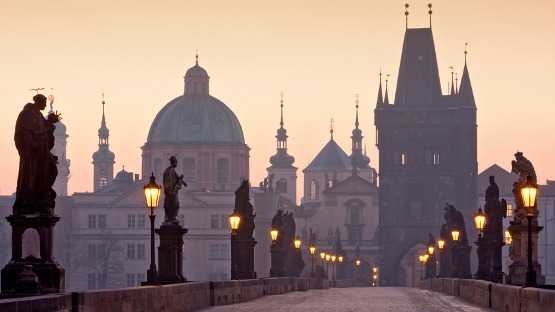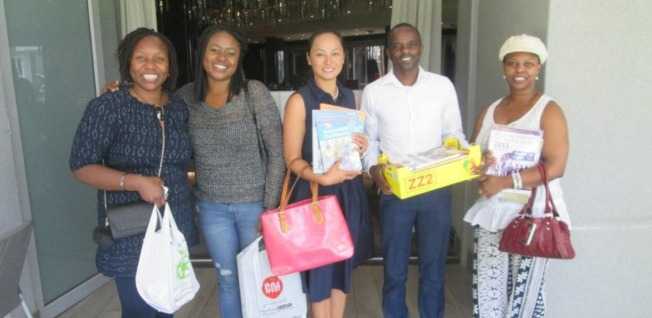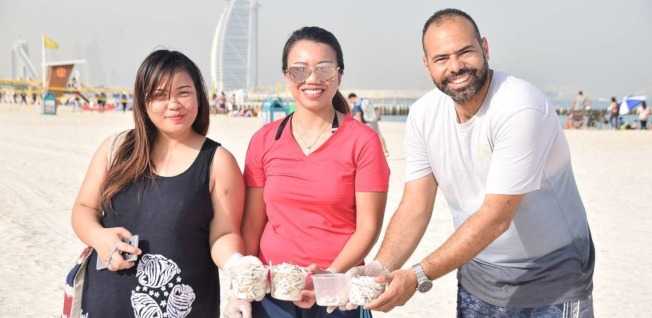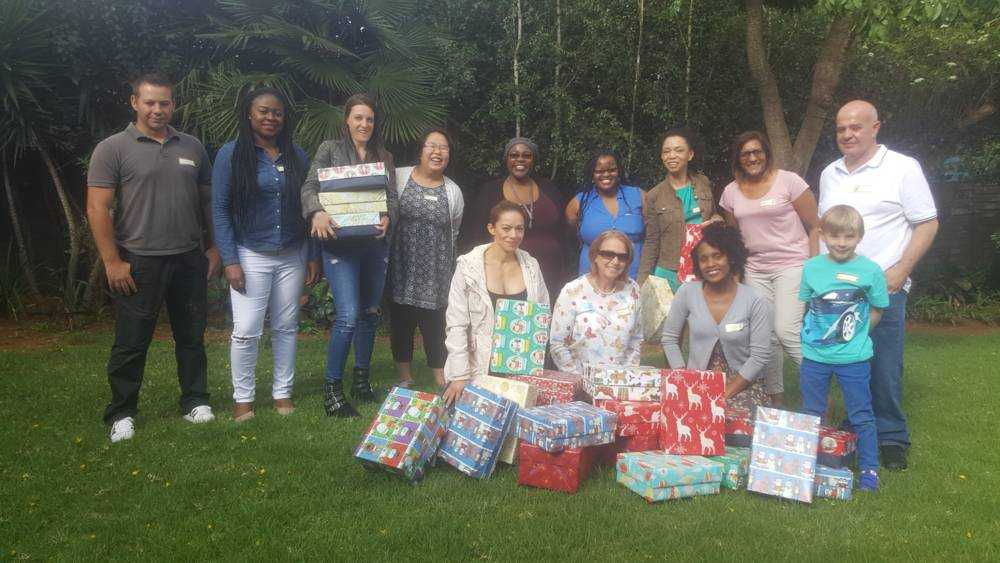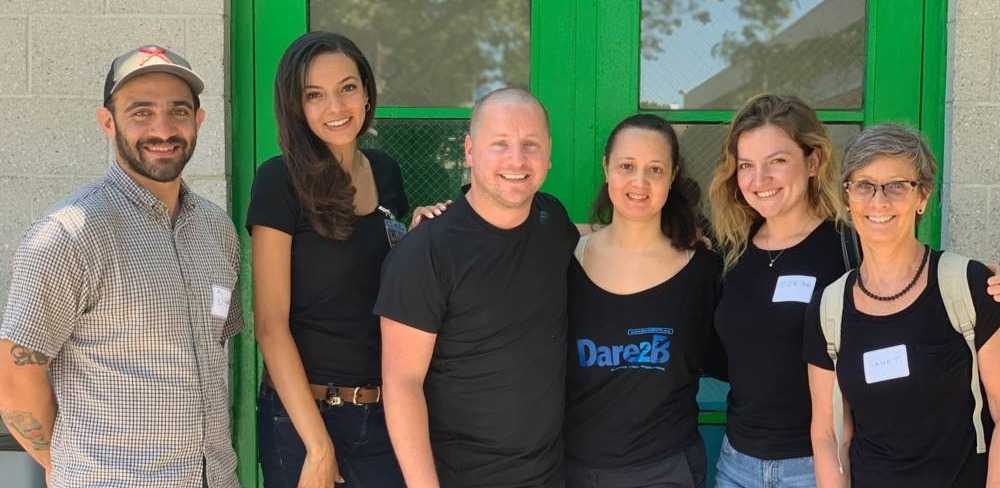Invisible Heroes — The Brussels Changemakers Meet Non-Profit Organizers
“It is important to share the work that volunteers from local organizations are doing, to show the world that we have other heroes working hard to help people, just like doctors and nurses.” — Mahmoud Qeshreh, Brussels Changemakers Consul
Throughout the past three months, the lockdown has had a very negative effect on the non-profit sector. The increased number of people in need of help on one side and the lack of resources combined with social distancing requirements on the other made it overwhelming or even impossible for local organizations to do their work.
In their last activity, the Brussels Changemakers created some space for discussion and introduced two local partners, “Serve the City Brussels” and “Pigment”. The group members learned more about the organizations working on the front line to make a positive change in their community and found out about the challenges they are facing. They found the activity insightful and inspiring — so much so that Consuls regretted not having organized more online activities in the past.
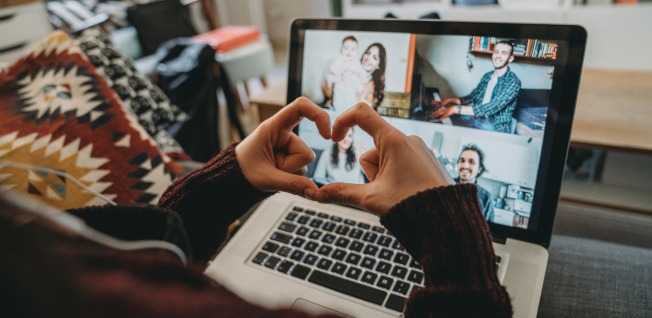
Local Organizations and Their Main Challenges
Mahmoud Qeshreh, from Serve the City Brussels (who is also a Changemakers Consul) introduced the organizations to the participants. According to him, “the main challenges for ‘Serve the City Brussels’ come down to financial issues. Since we lost some of our major funding sources due to the lockdown, we had to reduce the number of projects we were working on. We are now only running projects with a humanitarian focus, like Breakfast for Refugees.” Mahmoud admits that social distancing requirements have made their work even more difficult given that poor beneficiaries they target throughout their activities need to be reminded constantly about the rules. However, the energy among volunteers helps to keep things up and running.
The representative from Pigment NGO, Nele Verbist, also raised the issue of inadequate policies and indifference from the state institutions toward the most vulnerable. According to her, the reason why NGOs are struggling to provide basic services is lack of responsibility by the government bodies. “The government has far more resources and should enable local organizations to serve the poorest, if it is not possible for their own institutions to do so.” The people Pigment supports usually don’t have residence permits, which means they live in unstable circumstances. “Without a residence permit, they cannot, for example, open bank accounts, which puts them in a very difficult situation at the moment, since most shops only accept card payments as a hygiene precaution.” In her work, Nele addresses these and other important advocacy issues of human rights and dignity which have been disregarded by state institutions during these times.
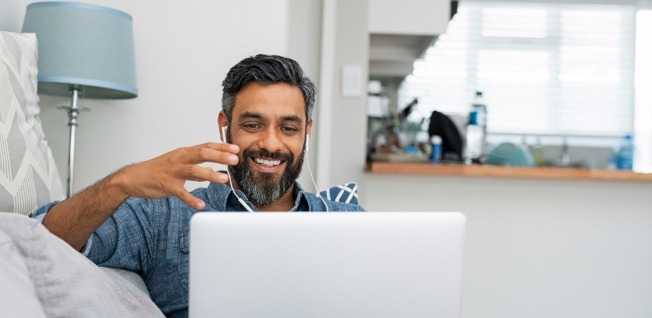
Volunteering during Corona Times
When asked about his experience of volunteer work in Corona times, Mahmoud responds: “It is definitely not an easy thing! We have to make sure the distance is respected among volunteers and those in need. Sometimes the police checks, whether we are respecting social distancing, especially with homeless people waiting in line for food.” Organizations face the struggle to serve their beneficiaries and comply with the rules while the number of volunteers has declined. Serve the City Brussels has also started handing out masks and hand sanitizer to the people they serve to help them cope with the situation.
Feeling Inspired
As Changemakers, the activities we organize are always about helping others but, while doing so, we are also nurturing kindness in ourselves. After the event, the Consuls received messages from some participants thanking them and asking how they could help and be more involved. They felt encouraged by the humanitarian work of local organizations in their city and asked for a follow-up activity to brainstorm some ideas and come up with a plan of involvement. Since then, the members have started to do some work on the ground and are helping to make a change in their community. This pandemic is a difficult time for everyone, but its consequences weigh more on some and those are the most vulnerable.
An Encouraging Note to Others
“These days so many issues are arising that if we stop and think what to do it may seem overwhelming or intimidating,” Mahmoud says. Instead of trying to help the entire world, he suggests a local approach. “We can all just sit down and think about someone who needs help on our street, our neighbourhood, and see how we can support them.” In his opinion, the best approach is to start small, by sewing one mask, making one sandwich, or cleaning just in front of our house. “If everyone does one small act of kindness, we can make a huge change!”
Advertisement
About Mirela Volaj
I worked in international organizations in Albania (my home country), focusing on children’s rights and wellbeing, for 10 years. Even before getting involved in NGOs, I have always been passionate about human rights and environmental protection, and after a decade of working for vulnerable groups, I consider myself a social activist. At InterNations, I am enjoying the opportunity to get to know the work of Changemakers around the world.
Article topics
Related articles
Feeding the Homeless with the Prague Changemakers
Changemakers Groups offer expats the chance to make a direct social impact in their city. Opened in May 2019, the Prague Changemakers led by Consuls Renata Sorce and Regina Boquin focus on supporting Prague’s homeless community. Here, they describe their experiences.
Changing the Lives of Children in Johannesburg
Since Shingirai Tashayawedu joined the Johannesburg Changemakers as Consul, he has built a remarkable partnership with several local NGOs and encouraged many InterNations members to collect school materials and clothes for children. Here, Shingirai describes how he makes a difference in his city.
Changemaker Groups Go Green for World Environment Day
InterNations Changemakers Groups support local environmental initiatives around the globe, and their members are no strangers to rolling up their sleeves to get a job done. Here we showcase three local initiatives to make a difference, in Dubai, Los Angeles, and Manila.
Building a Better World — Universal Children’s Day
Universal Children’s Day takes place every year on 20 November and focuses on children’s rights and welfare, as well as building a better world for kids. Many of our Changemakers Groups work hard to support children in different ways. Here, we want to introduce you to four of them.
The Year 2019 in Review with the InterNations Changemakers
As we begin a new decade, we can look back on a momentous year for the InterNations Changemakers. New cities were welcomed into the fold and groups found new and exciting ways to get creative, addressing the issues of our time: the climate emergency, social inclusion, and the refugee crisis.
